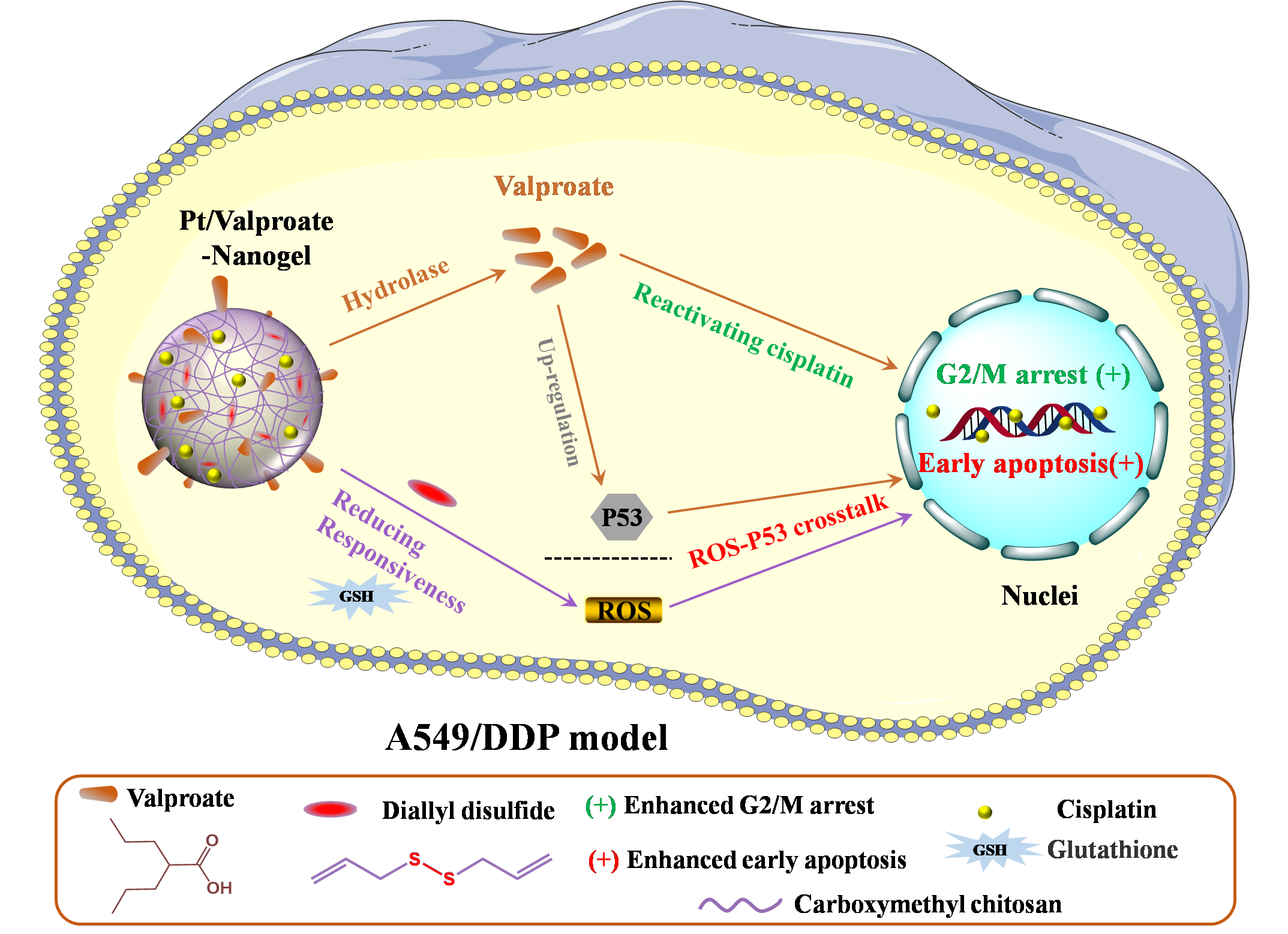Effective treatment of drug-resistant lung cancer via a nanogel capable of reactivating cisplatin and enhancing early apoptosis
作者:Sun, M.; He, L.; Fan, Z.*; Tang, R. P.*; Du, J. Z.* 时间:2020-07-26 点击数:

Abstract
Cisplatin resistance is a daunting obstacle in cancer therapy and one of the major causes for treatment failure due to the inadequate drug activity and apoptosis induction. To overcome cisplatin resistance, we proposed a multifunctional nanogel (designated as Valproate-D-Nanogel) capable of reactivating cisplatin and enhancing early apoptosis. This Valproate-D-Nanogel was prepared through copolymerizing carboxymethyl chitosan with diallyl disulfide and subsequent grafting with valproate to reverse the drug-resistance in cisplatin-resistant human lung adenocarcinoma cancer. It can significantly increase the proportion of G2/M phase (up to 3.2-fold enhancement) to reactivate cisplatin via high level of G2/M arrest induced by valproate. Meanwhile, the intracellular ROS-P53 crosstalk can be upregulated by diallyl disulfide (up to 8-fold increase of ROS) and valproate (up to 18-fold increase of P53) to enhance early apoptosis. The synchronization of enhanced G2/M arrest and ROS-P53 crosstalk devotes to reverse the cisplatin resistance with a high level of resistance reversion index (50.22). As a result, improved in vivo tumor inhibition (up to 15-fold higher compared to free cisplatin) and decreased systemic toxicity was observed after treatment with Valproate-D-Nanogels. Overall, this nanogel can effectively inhibit cisplatin-resistance cancer through combined pathways and provides an effective approach for overcoming cisplatin-resistance in cancer treatment.
文章链接:Biomaterials2020, DOI:10.1016/j.biomaterials.2020.120252.